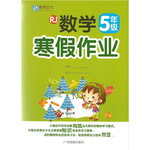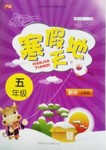题目内容
Years ago, a Southern woman was in one of my workshops. When asked to tell a story that 36 her character (品质), she described an 37 when she was 5. She was at her grandfather’s house 38 up in a beautiful white skirt and new gloves , 39 as she could be.
Her grandfather told her she could go into the 40 and get herself a cookie. Next to the cookies was a pile of coins. Sure that no one was 41 , she took one of the coins, too.
When she 42 with her cookie, her grandfather asked her to show him her 43 . She held out only her left hand 44 , and he said, “Show me the other hand.” When she unwillingly did 45 , showing the coin, she saw 46 in her grandfather’s eyes.
He paused a moment and then 47 her up, saying, “Darling, you can have anything in the world that I have, but it breaks my heart that you’d ever 48 it.” Some 50 years later, this story of how her grandfather gave her the gift of 49 still brought tears to her eyes.
Few things have as large an influence on 50 the values of a child as the strong pain of lovingly administered shame (羞愧). It helps judge right from wrong and gives a 51 emotional (感情的) dimension to moral (道德的) and character issues.
Kids, and adults for that matter, learn from their 52 . Parents, teachers and coworkers can remind them of their moral responsibilities without shaming or 53 them.
What we can’t do is just let 54 go, unless we want to send the message that’s okay. What we allow, we 55 . And we should never encourage anything other than moral excellence.
Her grandfather told her she could go into the 40 and get herself a cookie. Next to the cookies was a pile of coins. Sure that no one was 41 , she took one of the coins, too.
When she 42 with her cookie, her grandfather asked her to show him her 43 . She held out only her left hand 44 , and he said, “Show me the other hand.” When she unwillingly did 45 , showing the coin, she saw 46 in her grandfather’s eyes.
He paused a moment and then 47 her up, saying, “Darling, you can have anything in the world that I have, but it breaks my heart that you’d ever 48 it.” Some 50 years later, this story of how her grandfather gave her the gift of 49 still brought tears to her eyes.
Few things have as large an influence on 50 the values of a child as the strong pain of lovingly administered shame (羞愧). It helps judge right from wrong and gives a 51 emotional (感情的) dimension to moral (道德的) and character issues.
Kids, and adults for that matter, learn from their 52 . Parents, teachers and coworkers can remind them of their moral responsibilities without shaming or 53 them.
What we can’t do is just let 54 go, unless we want to send the message that’s okay. What we allow, we 55 . And we should never encourage anything other than moral excellence.
| 小题1: |
|
| 小题2: |
|
| 小题3: |
|
| 小题4: |
|
| 小题5: |
|
| 小题6: |
|
| 小题7: |
|
| 小题8: |
|
| 小题9: |
|
| 小题10: |
|
| 小题11: |
|
| 小题12: |
|
| 小题13: |
|
| 小题14: |
|
| 小题15: |
|
| 小题16: |
|
| 小题17: |
|
| 小题18: |
|
| 小题19: |
|
| 小题20: |
|
小题1:B
小题2:D
小题3:C
小题4:A
小题5:C
小题6:A
小题7:B
小题8:A
小题9:C
小题10:B
小题11:A
小题12:D
小题13:B
小题14:C
小题15:A
小题16:D
小题17:B
小题18:C
小题19:A
小题20:A
试题分析:本文通过描述小时候所经历的一件小事告诉我们诚实的重要性。
小题1:B 动词辨析。A改变B影响C形成D建设;当被要请求讲述一个影响她品质的故事,她讲述了一个她5岁的时候发生的小事情。
小题2:D 名词辨析。A场合B冒险C事故D小事件;她描述了一个在她5岁的时候,所发生的事情。
小题3:C 短语辨析。Put up搭建,留宿;bring up抚养,呕吐;dress up打扮;hold up延误;她在爷爷家里穿着一件白色的连衣裙。
小题4:A 形容词辨析。A自豪的B耐心的C有创造力D荒谬的;因为她穿着很好,所以她很自豪。
小题5:C 上下文串联。根据get herself a cookie中的煎饼,说明是进来厨房。
小题6:A 动词辨析。A看见B通过C跟随D听;因为没有人看见,所以她偷偷地拿了一个硬币。
小题7:B 上下文串联。上文叙述她进了厨房那东西吃,现在回到了爷爷的身边。
小题8:A 上下文串联。根据44空前的left hand可知爷爷要看她手里的东西。
小题9:C 副词辨析。A迅速地B礼貌地C小心地;谨慎地D突然;她只是小心地把左手伸了出来,右手没有拿出来。
小题10:B 上下文串联。本句的so就是指前句“Show me the other hand.”她不愿意这样做。
小题11:A 名词辨析。A失望B惊讶C兴奋D快乐;她把右手里银币拿了出来,爷爷的眼里慢是失望。
小题12:D 动词辨析。A送B打电话C拿走D拥抱;爷爷停顿了一会,然后把她抱了起来。
小题13:B 上下文串联。根据上文的描述可知她是在没有人的时候,偷偷拿了硬币。所以爷爷才说她偷了东西让他很伤心。
小题14:C 名词辨析。A信心B决心C诚实D勇气;根据上文可知爷爷给她讲述的是诚实的重要性,所以当她想起这件事的时候,仍然很难受。
小题15:A 动词辨析。A塑造B判断C破坏D活动;在塑造孩子的价值观方面没有说明比羞愧有更大的影响了。
小题16:D 形容词辨析。A不同的B相似的C实用的D强大的;这可以帮助孩子辨别是非,给道德情感很大的感情限制。
小题17:B 名词辨析。A经验B错误C冒险D书本;本句是指人们要从所犯的错误中学习。
小题18:C 动词辨析。A麻烦B使…危险C伤害D欺骗;在不欺骗和羞辱他们的情况下,父母,老师和同事会提醒他们所承担的道德道德责任。
小题19:A 名词辨析。A不端行为B过错C负担D痛苦;我们不能做的事情就是不能让这些不端的行为不受处理。
小题20:A 动词辨析。A鼓励B同意C调整D拒绝;我们允许做鼓励做的事情中做重要的就是道德上的优秀。
点评:本文通过描述小时候所经历的一件小事告诉我们诚实的重要性。从本文来看,考生应该从时态、语态、语气、名词的数等各个角度分析所填内容是否与上下文一致,从而排除一些备选答案,缩小选择范围;分析空白处与前后词之间的语义关联、搭配关系,从而排除一些选项;弄清楚该题的句法关系,分析一下它是简单句、并列句,还是复合句;判断所填的内容在句中充当什么成分,应是什么词性,并分析备选答案之间的异同,从而排除干扰项选出正确答案。

练习册系列答案
 黎明文化寒假作业系列答案
黎明文化寒假作业系列答案 寒假天地重庆出版社系列答案
寒假天地重庆出版社系列答案
相关题目